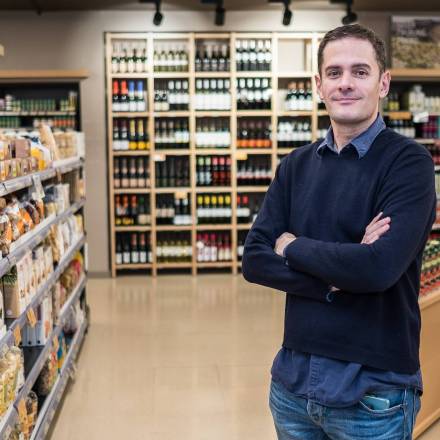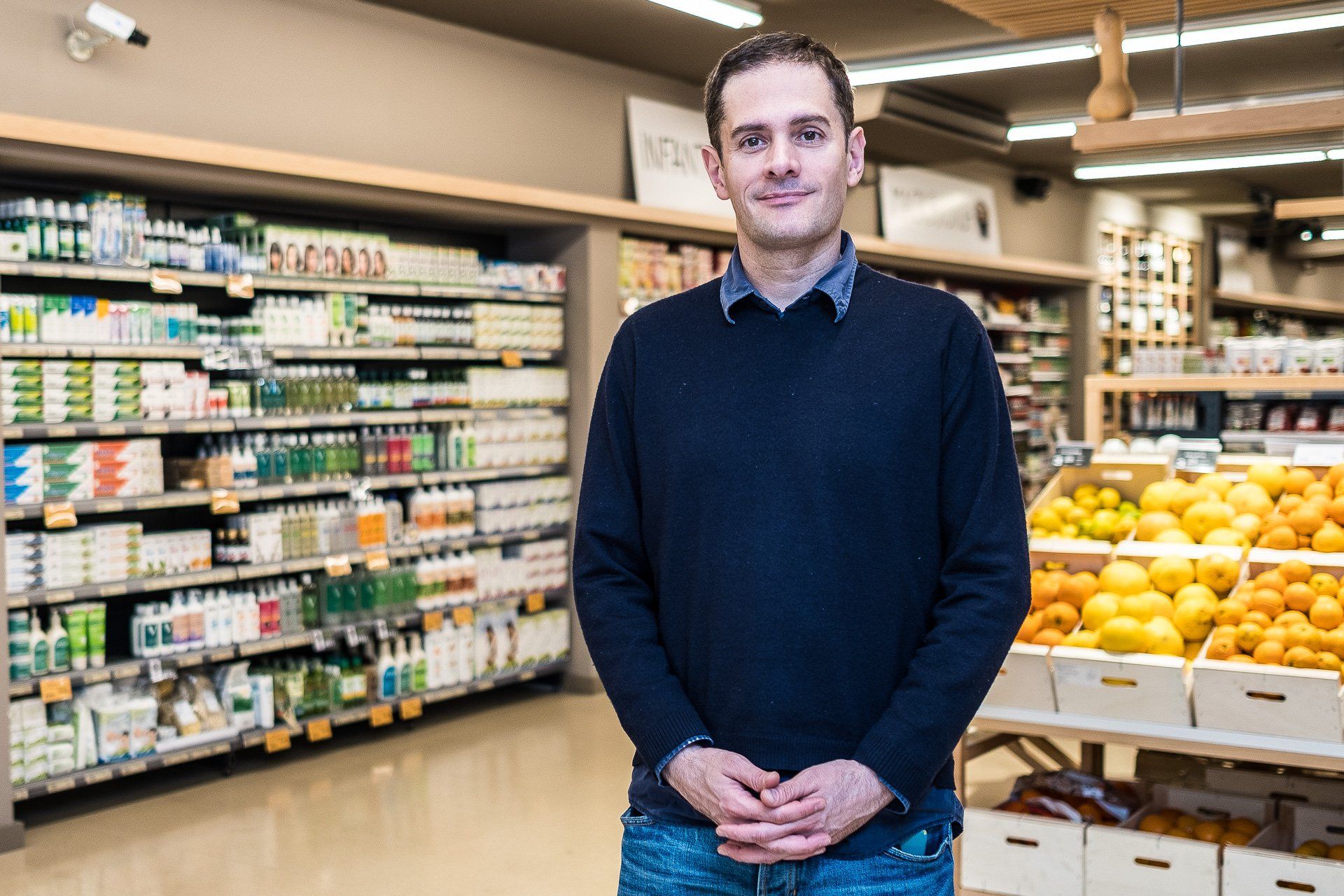
Apart from Elias, with experience in food distribution at Caprabo, Josep Pont (Borges), Joan Martí and Esade professor Carles Torrecilla are the others behind Veritas. "We wanted to make a type of supermarket that was different than what was around at that time," recalls Elias. After a time in the purchasing department of a major line of Dutch supermarkets, his friend and faculty colleague, Torrecilla, rang him to encourage him to invest in organic food. "In Holland I saw the area of organic products begin, which was a brutal free-for-all. Having an academic background encouraged us," he remembers. "Everyone says today that you are what you eat, but attributing cause and effect to food and health is very recent in the collective awareness. We only used to worry about food in terms of getting fatter or thinner," he adds.
Creating the demand
"We travelled around Europe and saw that there was an increasing awareness on behalf of families," says Silvio Elias. Consumers were increasingly demanding more products "free of a whole series of things that the food industry was adding to lower costs or achieve uniformity." Additives or pesticides had no place in the ideas of Veritas's founders.
Yet a supermarket that only sold organic products was unknown at that time in this country. The lack of competition is often interpreted as a lack of real business opportunity, but for Elias "if it worked in Germany, the UK, France and Italy, why not here?" At that time the nearest thing to be found were herbalists, "which had a mix of organic and dietary products and where consumers had little idea of how things worked," says the head of Veritas.
Moreover, the prices were "way above what they should have been" due to the difficulty in getting the product to the shop. "If you are the first perhaps you have got it wrong and sometimes you expire along the way. But if it was working all over the world, we believed that it would here too," he insists. And it has ended up working... after a few years. "The first seven years were very hard. We thought that opening the shops as supermarkets would stimulate demand, but things did not go like that," admits Silvio Elias.
 |
| Photo: Jordi Borràs |
"We created the offer and there was no demand. We thought it was latent, but it was up to us to create it." That is why Veritas began the task of spreading the word, which even included its own television programmes. "Obviously we weren't the only ones; there were more people doing it and global trends that were raising awareness. But we made a contribution," he says with conviction.
Bread, the best draw
Strangely, one of the best ways Veritas found for attracting consumers into its establishments was the sale of bread. A product bought every day ended up being fundamental in generating traffic in the shops. "In 2002, this boom of baker's with craft breads did not exist. Precooked frozen bread was all there was," recalls Elias. At Veritas they wanted to offer bread that substituted the yeasts with "time and long fermentation". As they could not find the ideal supplier, they went to Paris to learn how to do it.
"It worked out so well for us that today we supply bread to more than 50,000 children in schools in Catalonia every day," Silvio Elias says proudly. Basically, though, it was useful to Veritas for attaining a greater traffic of people coming to buy bread. "Bread is one way of explaining how organic products can become part of any family's daily diet. A loaf of bread of the same shape but which is so different, weighing 280 grammes, was key," he insists.
 |
| Photo: Jordi Borràs |
Growing with the suppliers
In 2004, Veritas opened a central warehouse that allowed it to manage its shops independently and bring volume together in one place. "That allowed us to make logistical savings that helped to bring prices down; and at the same time allowed us to tell producers that we could grow together." This is one of the premises of the supermarket chain. Elias points out that "we have a lot of fellow travellers who believed the same things we do."
When it comes to choosing a producer "first we have to learn a lot about the products to know what to ask for," he says. If the ideal supplier exists "we try to reach this understanding in order to move ahead together. If not, we look for someone who believes in this capacity to do it and we present the project to them, as we did with dairy products." Elias points out that "we promise producers a different way of working to what they are used to. We want them to be relaxed, for them to know what we want every week." He proves it by insisting that talks about prices only comes up once a year, "that way they know there is commitment to their production. We are looking for trust and to the long term," he says.
 |
| Photo: Jordi Borràs |
Young and urban consumer
While it is impossible to completely categorise a supermarket's consumers, Elias does point to some common elements. "They are usually people with a high socio-cultural level, which does not mean socio-economic. They are people with a good sense of what is important for food and health," he says. At the same time, he adds that "it is a very urban profile, more often young people, especially families. Small children are a catalyst for starting to think a lot about what you are eating."
When it comes to shopping, the head of Veritas says that the average purchase is lower than in traditional supermarkets. It is a fact that he accepts without a trace of disappointment. "We understand that families choose to do part of the household shop in our supermarket, usually the part they give more importance to. It's good for us because we can't expect families to buy everything from us, you can't expect a 0 to 100 change of habits."
Elias is sure that "purchases are deeply-rooted, we all have preferences for certain brands and there are a lot things that make a radical change of habits difficult." In all, he insists that "it's good for us to begin with a lower number of products."
They are products that are basically fresh. "It has a big influence because there is a notable difference. Where organic products play the largest role is in fresh produce," he says. Fruit, vegetables, bread, eggs, milk and dairy, therefore, are the star products of a supermarket in which what you see is what you get. Without additives.